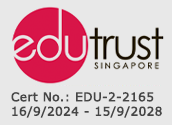- Home
- About Us
- Our Programme
- Admission
- Student Life
- CSR Programme
- News & Events
- Events
- News
- Progression to a Bachelor Degree begin with a Dual Diploma in Golden Compass School!
- Today we gather to celebrate the Year of the Tiger
- Opportunity to learn, reskill and upskill in the Tourism and Events Management Industry
- MEASURES IN RESPONSE TO COVID 19 – March 24 2020
- International Teachers Training course
- Financial Management Training
- Teacher Training Courses
- Teacher Training Courses
- Live craft – demonstrations
- Blogs
- Contact Us


 Course Introduction
Course Introduction  ADMISSION CRITERIA & FEES
ADMISSION CRITERIA & FEES 










